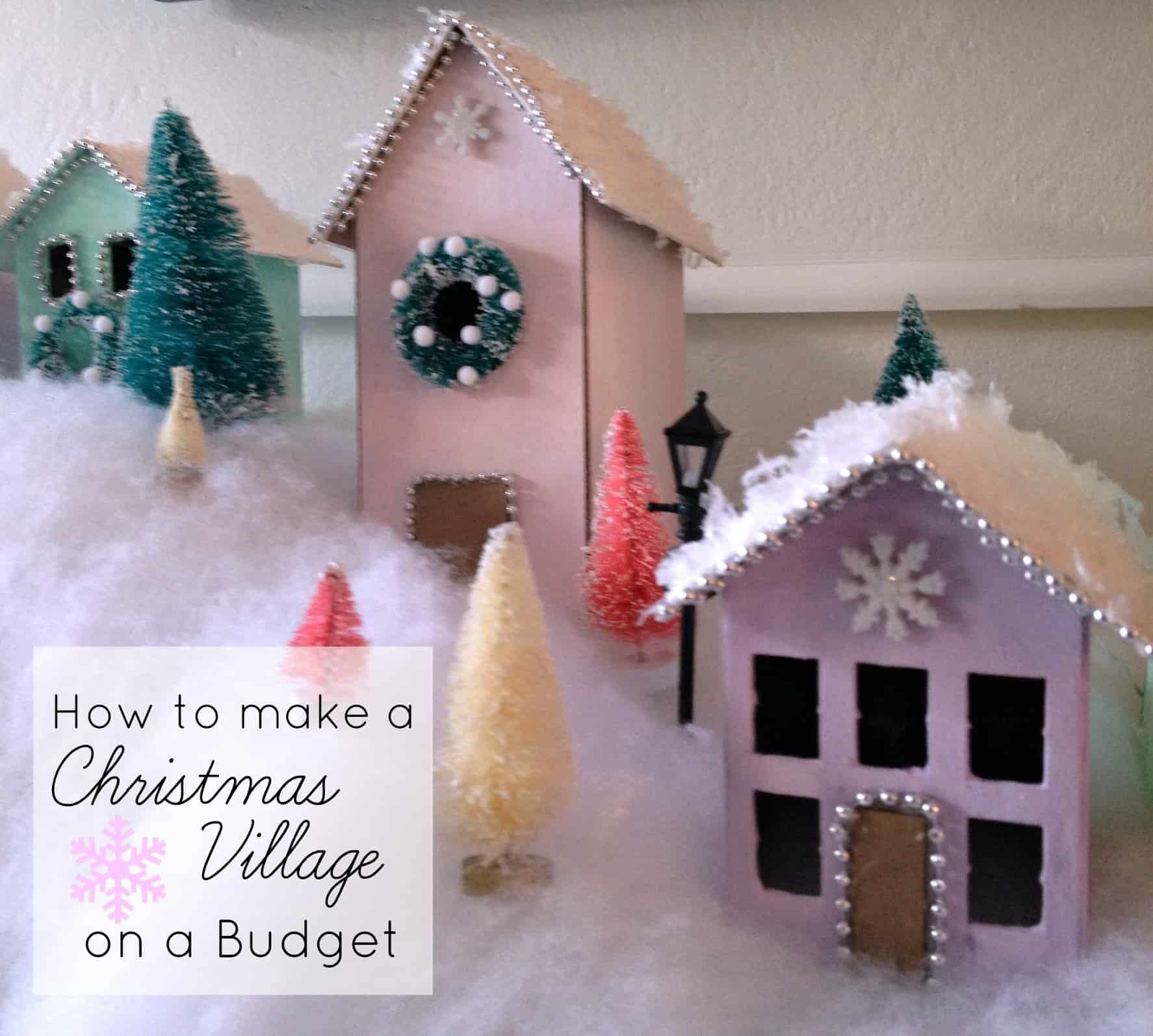Looking to navigate the holiday season without breaking the bank? Wondering how to prepare a budget for Christmas? Well, you’ve come to the right place! In this article, we’ll guide you through some practical steps to ensure you can enjoy the festivities without any financial stress. No more worrying about overspending or splurging on unnecessary items. We’re here to help you take control of your expenses, prioritize what matters most, and make the most of your holiday budget. So, let’s get started and make this Christmas season one to remember!
How to Prepare a Budget for Christmas
Christmas is a wonderful time of the year filled with joy, festivities, and celebrations. It’s a time when families come together to create unforgettable memories. However, it can also be a time of financial stress if you’re not prepared. With a little planning and budgeting, you can ensure that you have a memorable Christmas without breaking the bank. In this article, we’ll guide you through the step-by-step process of preparing a budget for Christmas so that you can enjoy the holiday season stress-free.
Step 1: Assess Your Financial Situation
The first step in preparing a budget for Christmas is to assess your current financial situation. Take a realistic look at your income, expenses, and any outstanding debts. Understanding your financial position will help you set a realistic budget for the holiday season.
Start by calculating your total monthly income, including any additional income sources such as bonuses or freelance work. Next, list all your regular monthly expenses, such as rent/mortgage, utilities, groceries, transportation, and any loan repayments. Subtract your expenses from your income to determine your disposable income.
It’s crucial to be honest and accurate during this assessment process. Take into account any upcoming expenses or financial commitments, such as bills, that may affect your budget for Christmas.
Step 2: Set a Realistic Budget
Once you have a clear understanding of your financial situation, it’s time to set a realistic budget for Christmas. Setting a budget will help you allocate your resources wisely and avoid overspending.
Start by determining the total amount you’re comfortable spending on Christmas. This includes gifts, decorations, food, travel, and any other expenses associated with the holiday. Consider expenses such as hosting parties, attending events, and even donating to charitable causes if it’s part of your holiday tradition.
Divide your budget into different categories, such as gifts for family and friends, decorations, food, and entertainment. Allocate a specific amount to each category based on your priorities and overall budget. Remember to leave some room for unexpected expenses that may arise during the holiday season.
Step 3: Make a Detailed Gift List
Gift-giving is an essential part of Christmas celebrations. However, it can be easy to overspend if you don’t plan ahead. Creating a detailed gift list will help you stay organized and within your budget.
Start by making a list of all the people you plan to buy gifts for, including family members, friends, colleagues, and any other individuals you wish to show appreciation to during the holiday season. Next to each person’s name, write down gift ideas within your budget range.
Consider alternative options such as homemade gifts, personalized items, or experiences instead of expensive store-bought presents. It’s the thought behind the gift that matters most.
Once you’ve finalized your list, total up the estimated cost of all the gifts. If the total exceeds your allocated gift budget, consider making adjustments by either reducing the number of gifts or finding more affordable options.
Step 4: Plan for Decorations and Entertainment
Creating a festive atmosphere is an integral part of Christmas. However, decorations and entertainment expenses can add up quickly if you’re not careful. Planning ahead will help you stay on track.
Make a list of all the decorations you plan to purchase or use from previous years. If you need to buy new decorations, research prices and compare options to find the best deals. Consider DIY projects or repurposing items you already have to save money.
When it comes to entertainment, research local community events, free concerts, or holiday-themed attractions that you can enjoy with your loved ones without spending a significant amount of money. Look for discounts or early bird specials to maximize your savings.
Step 5: Meal Planning and Grocery Shopping
Food is an essential part of any holiday celebration. Planning your meals and grocery shopping in advance can help you save money and reduce waste.
Start by planning your Christmas menu, taking into account any dietary restrictions and preferences of your guests. Make a list of all the ingredients you’ll need for each dish and cross-reference it with the items you already have at home. This will help you avoid unnecessary purchases and ensure that you’re only buying what you need.
Compare prices at different grocery stores and take advantage of any sales or discounts available. Consider buying non-perishable items in bulk to save money in the long run. Don’t forget to include beverages, snacks, and any special treats you plan to have during the holiday season.
Step 6: Track Your Expenses
Throughout the holiday season, it’s essential to track your expenses to ensure that you’re sticking to your budget. Use a spreadsheet, budgeting app, or even a pen and paper to record all your purchases and expenses.
Review your expenses regularly and compare them to your budget. This will help you identify any areas where you may be overspending and make necessary adjustments. Stay disciplined and avoid impulsive purchases that can quickly derail your budget.
Remember to account for any additional expenses that may arise during the holiday season, such as travel costs or last-minute gift purchases. Flexibility is key, but try to stay within your budget as much as possible.
Step 7: Find Ways to Save Money
Preparing a budget doesn’t mean you have to sacrifice the joy of Christmas. There are several ways to save money without compromising on the holiday spirit:
- Consider setting up a gift exchange or Secret Santa with your family or friends to reduce the number of gifts you need to purchase.
- Look for online deals, discount codes, or coupons before making any purchases.
- Take advantage of free shipping offers or consider shopping locally to support small businesses in your community.
- Consider DIY decorations or gifts that are both cost-effective and heartfelt.
- Host a potluck-style gathering where everyone contributes a dish, reducing the overall cost of food.
- Start saving early for Christmas next year by setting aside a small amount each month.
Remember, Christmas is about spending time with loved ones and creating cherished memories. Focus on the experiences rather than the materialistic aspects of the holiday.
By following these steps and being mindful of your budget, you can enjoy a stress-free Christmas filled with joy, love, and financial stability. Start planning early, stick to your budget, and embrace the true spirit of the holiday season.
How to create a Christmas budget #christmasbudget
Frequently Asked Questions
Frequently Asked Questions (FAQs)
1. How can I effectively prepare a budget for Christmas?
To prepare a budget for Christmas, start by determining how much you can afford to spend overall. Make a list of all the necessary expenses such as gifts, decorations, and food. Allocate specific amounts to each category and prioritize what is most important to you. Consider setting aside some money for unexpected expenses or last-minute purchases. Regularly track your expenses and make adjustments as needed to stay within your budget.
2. What are some tips for saving money during the holiday season?
Here are a few tips to help you save money during Christmas:
– Create a gift budget and stick to it.
– Consider DIY gifts or personalized presents instead of buying expensive items.
– Take advantage of sales, discounts, and coupons.
– Plan your meals and grocery shopping in advance to minimize food waste and overspending.
– Opt for cost-effective decorations and consider reusing items from previous years.
– Limit unnecessary expenses like excessive holiday outings or parties.
– Consider participating in gift exchanges or secret Santa arrangements to reduce the number of gifts you need to purchase.
3. Should I consider using cash or credit cards for my Christmas expenses?
Using cash can be an effective way to stick to your budget as it provides a tangible limit on your spending. However, if you choose to use credit cards, make sure to set a clear budget and only charge what you can afford to pay off in full when the bill arrives. Be cautious of high-interest rates and potential debt accumulation. It’s essential to prioritize responsible spending and avoid impulsive purchases.
4. How can I handle the pressure of buying expensive gifts during Christmas?
It’s important to remember that the price tag of a gift does not define its value. Focus on the thoughtfulness and significance behind the gift rather than its cost. Consider alternative gift options such as experiences, handmade items, or heartfelt gestures that don’t require a large financial investment. Openly communicate with friends and family about your budget constraints and suggest alternative ways to celebrate the holiday season together without feeling pressured to buy expensive gifts.
5. Are there any apps or tools that can help me plan and track my Christmas budget?
Yes, there are several apps and tools available to help you prepare and track your Christmas budget. Some popular options include Mint, Goodbudget, PocketGuard, and Wally. These apps allow you to set spending limits, track expenses, and provide insights into your financial habits. Utilizing such tools can make it easier to stay organized and maintain control over your Christmas spending.
6. How can I prioritize my expenses if I have a limited budget?
If you have a limited budget, prioritize your expenses based on what matters most to you and your loved ones. Consider focusing on essential items like food and basic decorations, and allocate a reasonable amount for gifts to those closest to you. You can also explore alternative ways to celebrate, such as hosting a potluck dinner or organizing a gift exchange with spending limits.
7. How do I avoid excessive holiday shopping and impulse buying?
To avoid excessive holiday shopping and impulse buying, it’s essential to plan ahead and create a detailed shopping list. Before making a purchase, ask yourself if it aligns with your overall budget and if the item is truly necessary. Consider implementing a cooling-off period where you wait 24 hours before purchasing any non-essential items. This can help curb impulsive buying tendencies and allow you to make more thoughtful and deliberate choices.
8. What can I do if I overspend on my Christmas budget?
If you find yourself overspending on your Christmas budget, don’t panic. Take a step back, reassess your remaining budget, and identify areas where you can make adjustments. Look for opportunities to cut back in non-essential categories or consider finding less expensive alternatives for certain expenses. It’s crucial to learn from the situation and make necessary changes to ensure better budgeting and spending habits in the future.
Final Thoughts
In conclusion, preparing a budget for Christmas is essential to maintain financial stability during the holiday season. By following a few simple steps, you can ensure an enjoyable celebration without overspending. Start by setting a realistic spending limit and listing all necessary expenses. Prioritize your expenditures and consider alternatives to costly activities or gifts. Researching online deals and utilizing coupons can help you save money as well. Remember, the key is to plan ahead, be mindful of your spending, and focus on creating cherished memories rather than extravagant purchases. So, when it comes to preparing a budget for Christmas, a little planning can go a long way.



